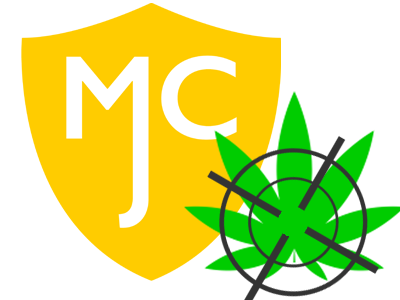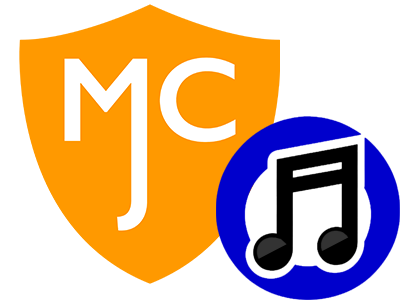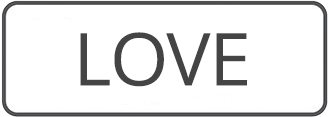
In the backdrop of steadily expanding arguments surrounding drug testing, an ancient yet persistently overlooked issue has measurably seeped into the social fabric, finding little room in casual dialogues. There is a contentious segment of the society that passionately calls for the complete abolishment of drug testing, rallying against it as an invasive and unjust practice. On the flip side, there are those who deem it a crucial instrument in enforcing work discipline, fostering wholesome human interactions, and propelling societal values. Herein, we dive headlong into this swirling mess of a debate — exposing the clandestine role played by the government in orchestrating a pervasive, under-the-radar DNA dragnet via extensive drug-testing programs.
Decoding the DNA Dragnet Disguised as Drug Testing
- Government’s nationwide urine drug testing program doubles as a DNA dragnet.
- Questions raised about the boundary between individual privacy rights and societal good.
- Analysis of the role of organizations like the Substance Abuse and Mental Health Services Administration (SAMHSA) in the potential DNA collection.
- The legal and privacy issues associated with unwarranted drug testing and DNA collection.
- The paradox of widespread societal acceptance of cannabis versus governmental regulation via drug testing.
- The urgent need for reform in laws related to warrantless drug testing and an emphasis on respect for individual privacy rights.
A Deep Dive into the Complex Maze of the DNA Dragnet Conducted Under the Disguise of Drug Testing

Ever since the surge in societal acceptance and usage of cannabis, it has evolved from being a social rogue to earning a noteworthy space for itself within the pantheon of respected and acceptable herbs. Reflectively, the burning question, pulsating at the societal epicentre — why this relentless governmental supervision and regulation of cannabis via drug testing? — requires some serious scrutiny and reflection.
The government has rolled out a methodical system of nationwide urine drug testing — this translates into a functional DNA dragnet operation. On the surface, this might appear benign, but the worrisome underbelly becomes glaringly visible when examined closely.
Under the cover of a generic drug profiling quest, the government mines the most elemental blueprint of our identity — our DNA.
Wondering why this occurs? A handful of reasons come to light. One, to gain early insights into potential health risks and thereby, instigate preemptive healthcare measures. Two, it aids in the pursuit of justice through genetic matching at crime scenes, among others.
However, the burning question remains — where do we draw the boundary between individual privacy rights and societal good? More importantly, who gets to decide upon this invisible yet crucial buffer zone and its dynamics?
The Enigma of Shadowy Organizations and their Covert Operations

Just imagine a thought experiment. Consider a mammoth reservoir of data that once collated, turns into a treasure trove — one that could be mined and harnessed by the government. The Substance Abuse and Mental Health Services Administration (SAMHSA), a wing of the United States Department of Health and Human Services (HHS) and an organization actively involved in mental health and substance abuse issues, might be part of this conjectural DNA collection project.
Ponder over a covert operation given the mandate to compile massive amounts of DNA data.
Then envisage this covert operation chiefly led by the SAMHSA — an organization duty-bound to safeguard public health. Now take a close look at the ethically ambiguous terrain that such information mining is treading on.
Doesn’t it seem plausible?
It wouldn’t be that hard to do.
People have been conditioned to give up their fourth amendment right to privacy and provide a urine sample under duress of not being able to gain or maintain employment for decades.
Since the late ’80s, there have generally been only a few dozen certified labs for drug testing. Every year, they go through a re-certification process. As of September, 2023, everyone that pees in a cup has their urine sent to one of only 19 HHS certified labs.
It wouldn’t take anything to have a HUMINT/Top Secret program running in the background, sampling and cataloging the DNA of every single urine sample that gets sent through their doors.
The apprehensions around these secretive organizations and their undercover operations could be legitimate. These entities, shrouded behind curtains of confidentiality, could potentially be holding the master keys to our genetic codes. Several sources indicate that the DNA Data Marketplace will be a $60 billion industry by 2030 (Source 1) (Source 2).
There’s no telling who, or what, will be exploiting our personal data freely given up through nefarious drug testing programs. This fuels an infinite stream of speculations and anxieties about future use and misuse of DNA, particularly in an era dominated by artificial intelligence, cryptocurrency, and aerial drones.

The Privacy & Legal Contexts of Concealed DNA Collection
The intersection of warrantless drug testing, especially targetting cannabis users and its compatibility with the Fourth Amendment, creates a hazy cloud of ambivalence.
Most strikingly, this seems to be at loggerheads with the Constitution’s Fourth Amendment — a stalwart guardian against unreasonable searches and seizures. There’s no denying the fundamental reality — the action of gathering someone’s body fluids under duress and ostensibly for the purpose of detecting drugs, represents a gross invasion of privacy. This is especially true when the individual’s consent is extracted under the looming threat of unpleasant outcomes (like termination of employment). It has often been argued that the Fourth Amendment embodies a broader philosophical principle — protection from unlawful intrusions into a citizen’s privacy.
“An invasion, however slight, is still an invasion if it be unlawful, and it is an actionable wrong”
From this standpoint, it is clear that warrantless drug testing violates these constitutional safeguards. The need to address this glaring issue becomes glaringly urgent.
The Complexity of the Cannabis Conundrum and the Infringement of Civil Rights
The pulsating epicentre of this debate focusses on Cannabis. The extreme juxtaposition between societal acceptance of cannabis and the constant governmental pursuit of cannabis users employing warrantless drug testing methods brings to light a disturbing paradox. This riddle tests the limits of governance and raises flags on potential rights violation and discrimination.
Take into account these aspects:
- Cannabis rules and regulations vary significantly from state to state, leading to a significant spread in the national outlook on its usage — a fuel that stokes the fire of the drug testing debate.
- States where cannabis use is legalized find themselves walking a tightrope between permission to use the substance and the compliance with federal workplace drug-testing protocols.
- In a peculiar turn of events, even in places where medicinal and recreational cannabis use is legalized, individuals can still lose their jobs due to positive drug tests. This situation, laden with irony and despair, sheds light on the prevailing legal grey zones.
The Inevitable Clarion Call for Reform
As we examine these matters, an urgent need for reform sweeps through both the social and legal arenas. Specifically, the dire requirement to revisit laws related to warrantless drug testing in light of the glaring concerns around privacy and constitutional rights cannot be understated. It’s crucial that we seek alternative models — ones capable of tackling drug abuse without infringing on privacy rights —all seeking to pave the path towards balanced, fair, and effective governance.
Our Hopes for a Future Free from Warrantless Drug Testing
Envisioning a future where drug testing methods seamlessly align with privacy rights may bring challenges, yet the essence of a true democracy is held within the power of its citizens. To actualize this utopia, we need a potent blend of an educated population, strict checks and balances, effective legal enforcement, and policies based on robust scientific research – these are the proverbial keys required to unlock the door to equitable drug laws.
Given the deeply intricate backdrop of the prevailing mass drug testing methods, particularly those centred around cannabis; the blatant dissonance with citizens’ rights, and their alignment with constitutional provisions, it is overwhelmingly apparent that we stand on a perilous precipice.
Preserving the sanctity of the constitution and respecting individual privacy rights holds paramount importance if we are to sustain a functional and respectful society. However, one can’t help but wonder — for how long are we poised to tread on this teetering precipice before we plunge into the precipitous abyss of irreparable damage?










